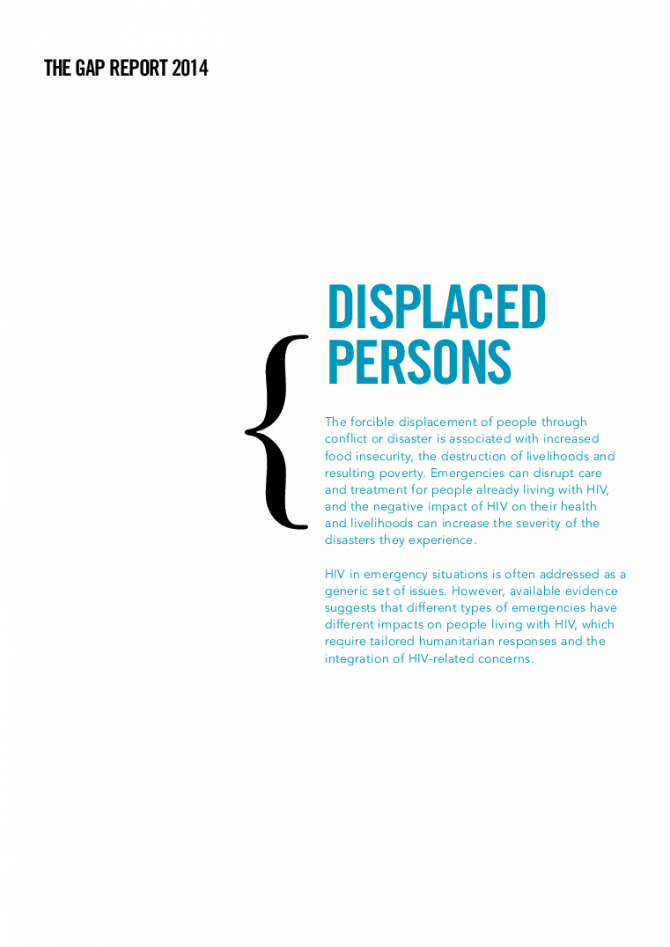Documents
Displaced persons
16 October 2014
The forcible displacement of people through conflict or disaster is associated with increased food insecurity, the destruction of livelihoods and resulting poverty. Emergencies can disrupt care and treatment for people already living with HIV, and the negative impact of HIV on their health and livelihoods can increase the severity of the disasters they experience. HIV in emergency situations is often addressed as a generic set of issues. However, available evidence suggests that different types of emergencies have different impacts on people living with HIV, which require tailored humanitarian responses and the integration of HIV-related concerns.

